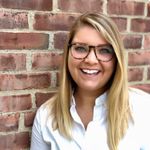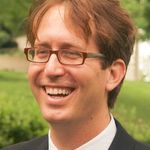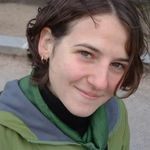2020-21 Hub Teaching Excellence Faculty Fellows Portfolios
The 2020-2021 Hub Teaching Excellence Faculty Fellows (HTEFF) Program, offered by the CTL and the BU Hub, cultivated teaching and learning networks around research-based pedagogical principles.
Five faculty members took part in the 2020-2021 Fellows program. Over the course of the year, Fellows worked on their Hub course proposals and facilitated Hub/CTL events. Each Fellow then created a portfolio which included course materials (e.g., syllabi, assignment prompts) and a brief reflection on their experience in the Program.
Fellow portfolios
Kaytlin Eldred, Lecturer, Health Sciences

In many ways, my courses were already utilizing multiple Hub units, so “integrating” the Hub wasn’t as daunting of a task as I had assumed it might be. If anything, being encouraged during the application process to draw distinct lines between course material and learning outcomes made my courses stronger and I believe gave students clear expectations of my course. For example, prior to Hub applications, I assumed that teamwork was something relayed to students through my activities and teaching style. The Hub application process made me create space in my syllabus and dedicate classroom time to teaching team dynamics, which actually made the team projects in my course run much smoother. I now require teams to complete team contracts and expectation guidelines to hold each other accountable, which has prevented animosity among peers later in the semester.
Here’s some context. During late 2019, I was recruited to be part of the BU Center for Teaching and Learning’s Hub Teaching Excellence Faculty Fellows Program during 2020. This program selected faculty from various BU schools/colleges who have successfully proposed Hub courses involving an interdisciplinary approach to their discipline as well as courses that have unexpected and innovative Hub areas combined within a single course. Our cohort facilitated conversation through CTL’s Hub & Pub events, specifically around resilience in the classroom during COVID and successful teaching strategies.
I teach three courses that are currently within the Hub and I am in the application process of adding Hub units to a fourth course. These courses, while all within the Health Science program, are examples of four essential Hub capacities (2, 4, 5, and 6).
- SAR HS 325: Introduction to Global Health (Hub units: Global Citizenship & Intercultural Literacy, Ethical Reasoning, Teamwork/Collaboration)
- SAR HS 349: Cultural Humility, Racial Justice, and Health (In Application for Hub units: Individual and Community, Digital/Multimedia Expression, and Creativity and Innovation)
- SAR HS 440: Qualitative Research Methods in Global Health (Hub units: Teamwork/Collaboration, Social Inquiry II)
- SAR HS 442: Healthcare Interventions in Low and Lower Middle Income Countries (Hub units: Global Citizenship and Intercultural Literacy, Digital/Multimedia Expression, Teamwork/Collaboration)
Portfolio Materials
Sophie Godley, Clinical Assistant Professor, School of Public Health

I have been really lucky to feel that the Hub is a perfect fit for my courses – my Kilachand courses and my public health courses. First, I noticed that in my Hub development sessions I had objectives and learning outcomes identified already, and that it was not a huge challenge to integrate Hub outcomes with my course. Second, my teaching and pedagogy is inherently interdisciplinary, and I am always trying to think about how to expand the reach of public health to other disciplines.
I have been really gratified to see that the Hub integration has made PH510 (my intro to public health course) accessible to students throughout BU. I really love having students in my course who are from Engineering, sitting next to an acting student in CFA. I think they have so much to learn from one another, and they are often pleasantly surprised to discover that they have values or ideals in common. This, to me, is literally the ideal outcome for the Hub – that students meet one another across the campus and across silos of their disciplines, and then students learn something about themselves, and about each other.
One of my most precious goals as an educator at Boston University is to introduce a wide range of students to issues around diversity, inclusion, social class, and race. I feel that the Hub structure makes this easier to accomplish, and allows me to be very intentional and up front about my goals in teaching with an equity-social justice focus.
Like many, I have struggled with the LfA semesters, but feel very proud that despite the pandemic I taught many courses, to students literally all over the world this past year! In the spring of 2020 I was teaching two courses, and then I taught a summer 1 course entirely remote. In the fall of 2020 I taught three courses LfA where I was in person for each class. This spring I am teaching one course LfA, where I am in person every class. I am relieved that Summer 1 will be the last iteration of this modality. I think building a community between the online and the in-person students only works if the in person students are also online – so for example in my graduate class and in my HC401 in fall of 2020 we did a lot of breakout rooms where the in person students would zoom with the online cohort. This worked well in classrooms where there was enough space but less well in classrooms with less space where it quickly became very loud. I also struggled with making the in-person students be online, when for some of them this was literally their only in person opportunity the entire semester.
I am very grateful for the multiple opportunities the Hub program has provided to allow me to sharpen my thinking about learning outcomes and objectives for my classes. I am also very grateful for the ongoing opportunity to work with the Hub group and the CTL group, and I hope that there are additional opportunities to collaborate going forward!
Thank you!
Portfolio Materials
I have developed and taught three Hub courses: KHC HC 401 (taught Fall 2019 and Fall 2020), KHC PH103 (taught Spring 2020), and SPH PH510 (taught Spring 2020, Fall 2020 and Spring 2021). I have enjoyed the process of putting my courses through the Hub, as the required attention to detail and learning outcomes has strengthened the courses. I also appreciated the opportunity to expand my enrollment in my PH510 class to those outside CAS and SAR who were looking to fulfill a Hub requirement.
- KHC HC 401 (syllabus): a class for juniors enrolled in the Kilachand Honors College. This course is designed to teach students about research, and to help them transition from being consumers of knowledge to developers of knowledge.
- KHC PH 103 (syllabus): a class for first year students enrolled in the Kilachand Honors College. This course is designed to help students transition from being high school students to becoming college students: to broaden their knowledge, deepen their skills, and sharpen their critical thinking.
- KHC PH 510 (syllabus): this is a required course for the public health minor, offered to sophomores, juniors and seniors from throughout BU. We have a large range of students who enroll in this course from a wide spectrum across BU (ENG, CFA, QST, CAS, SHA, SAR).
Joseph Harris, Associate Professor, Sociology

I teach four courses in the Hub regularly: Principles of Sociology (SO100), Sociology of Health and Healthcare (SO 215), Research Practicum (SO 400), and Politics of Global Health (SO 490). The introduction of the Hub provided me with the opportunity to consider which essential capacities my courses offered students and to make linkages between class assignments and learning outcomes much more explicit than before. Deciding which essential capacities best reflect the courses’ content is always my first step in Hubbing a course. Some essential capacities are natural fits for sociology and ones that I consider alongside departmental, college, and university Hub priorities.
While the inclusion of learning outcomes in syllabi is a common practice in some fields, this was something new for me and for others within the discipline of sociology. Forcing me to think seriously and deliberately about my pedagogical aims was, for me, one of the greatest values of Hubbing a class. Some aims related specifically to the Hub’s essential capacities; some were more specific to the subject matter of the course, though no less important.
One other rewarding part of Hubbing a class involved thinking creatively about ways I might tweak existing assignments in order to speak to essential capacities in new and exciting ways. This was the fun part, as it involved thinking about meaningful ways for students to connect to the course material and making substantive changes to course assignments.
For my “How I Hub” portfolio, I chose two courses I teach regularly to offer a window into my experience Hubbing a class: SO 215 Sociology of Health and Healthcare and SO 490 Politics of Global Health. I chose these two courses because they offer a window into how I approach Hubbing a survey course and an advanced undergraduate/graduate seminar differently and a window into different assignments that I have used in relation to different Hub Units. Both also offer a window into innovative ways I have approached the challenge of remote/hybrid teaching as part of the Learn from Anywhere framework.
You’ll see below that I have highlighted sections of the syllabi that explicitly connect learning activities in the courses to learning outcomes associated with Hub Units.
Portfolio Materials
Irit Kleinman, Associate Professor, Romance Studies

Serving as a Hub Teaching Excellence Faculty Fellow has been among the most positive experiences that I’ve had during my time at BU. I wish to express my thanks to you and to the CTL for an opportunity that has hopefully allowed me to help others, and has certainly enabled me to learn from others.
Like many BU faculty members, I began from a place of ambivalence, perhaps skepticism, regarding the Hub–not about the idea of a General Education curriculum, but rather about the Hub’s more bureaucratic aspects. However, several years into this experiment, it is clear that the Hub has enriched my involvement with undergraduate learning at Boston University in ways I could not otherwise have imagined.
Working within Hub frameworks, I have written a number of new, upper level syllabi, resulting in a complete redesign of my teaching, some of it still being rolled out semester by semester. I have deliberately tried to create a sort of matrix, as it were, distributing distinct skills across a range of content areas. All of my personal courses carry AEX units, along with additional units/toolkit area skills in PLM, HCO, ETR, WIN, RIL, TWC, CRI, and, through the Core Curriculum, DME.
I used to work primarily with small groups of language learners–Minors, and especially Majors, in French. My courses were conducted exclusively in French, which left them inaccessible to most BU students. The Hub has served as a catalyst for several different kinds of change within my home department. My courses are now largely conducted in English, and reach students who may have no previous knowledge of the history, cultures, or languages of France. Instead, these students arrive in my classroom because they are drawn to the Big Ideas and Hub learning objectives that shape my seminars.
The Hub also has freed me to do things that I might have felt more inhibited about attempting previously, but that are indisputably to the benefit of my students. I am thinking, for example, of the validation and centrality I am now able to give to both Teamwork and Creativity within my courses. From the students’ perspective, there are other rewards: STEM students can now take more and different Humanities classes while meeting graduation requirements. It is corny, but the Hub brings One BU a step closer to reality.
This cover letter has become a personal reflection on my experience of the Hub as a faculty member. Please don’t hesitate to let me know how I can help make that experience the most useful to the largest number of our colleagues.